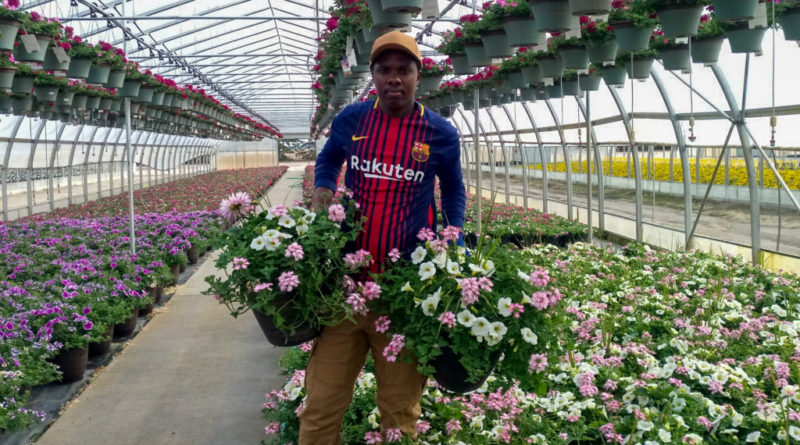Where Are They Now: Meet Erick Kumari from Tanzania
Erick Kumari is an entrepreneur, inspiring mentor and master’s degree student at China Agricultural University in Beijing, China. Originally from Tanzania, East Africa, he holds a bachelor of science degree in horticulture from Sokoine University of Agriculture.
From 2018-2019, Erick participated in a CAEP horticulture program as an intern at Bergen’s Nursery in Minnesota and The Chef’s Garden Inc. in Ohio.
Read on to learn about how Erick’s extensive experience through his CAEP program in the USA motivated him to change the lives of many and land a spot at the second highest ranking agriculture university in the world.
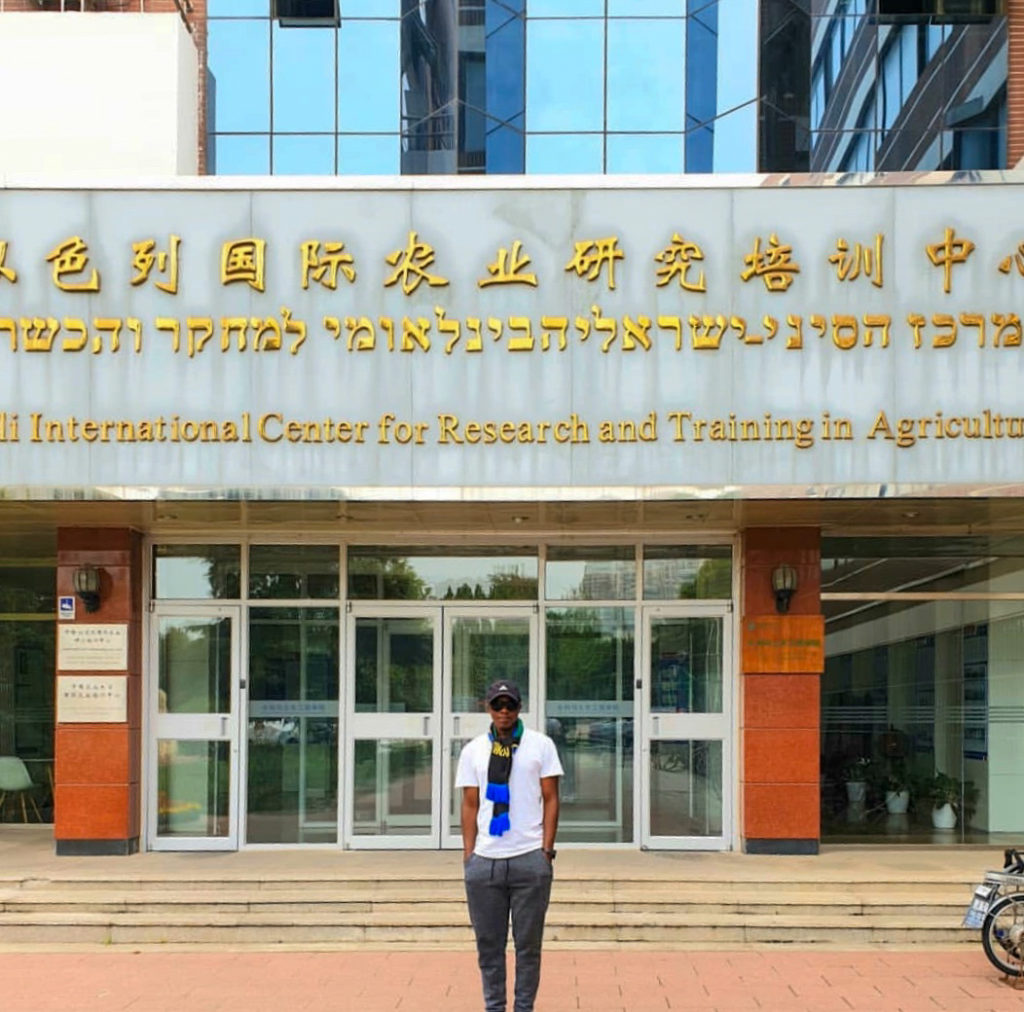
Q. What is your current career and how you feel CAEP helped prepare you for it?
Erick Kumari: I am currently a student at China Agricultural University (CAU). To be recruited there, it’s not a simple task, because they want the best students to secure their position among top ten agricultural universities in the world.
My CAEP experience was among the biggest reasons I was recruited to CAU.
Additionally, after I finished my internship program, many horticulture enterprises trusted me to work with them. It especially helped me with my position as an assistant internship coordinator at SUGECO Tanzania.
Q. What was it like when you first came to the USA?
EK: It was super exciting and little bit nerve-racking. I was excited to visit a great country like the USA. However, I was also a bit nervous because Leila, the CAEP horticulture coordinator, informed me that I was going to be the first Tanzanian to the horticulture program.
So, I felt like I was representing Tanzania to the program. To be like a country ambassador, it’s not a simple task.
Now, I am very proud that I help Tanzania Agriculture University graduates obtain internship placements with CAEP. Within a short period of time from 2018-2020, many more Tanzanians have gone to the USA as exchange visitors.
Q. What was the most challenging part of your experience?
EK: The most challenging was the weather in Minnesota during winter.
My host informed me to have enough outfits for the season. Working was not easy, especially during winter time, but the company had enough heating facilities that made the living and working life okay.
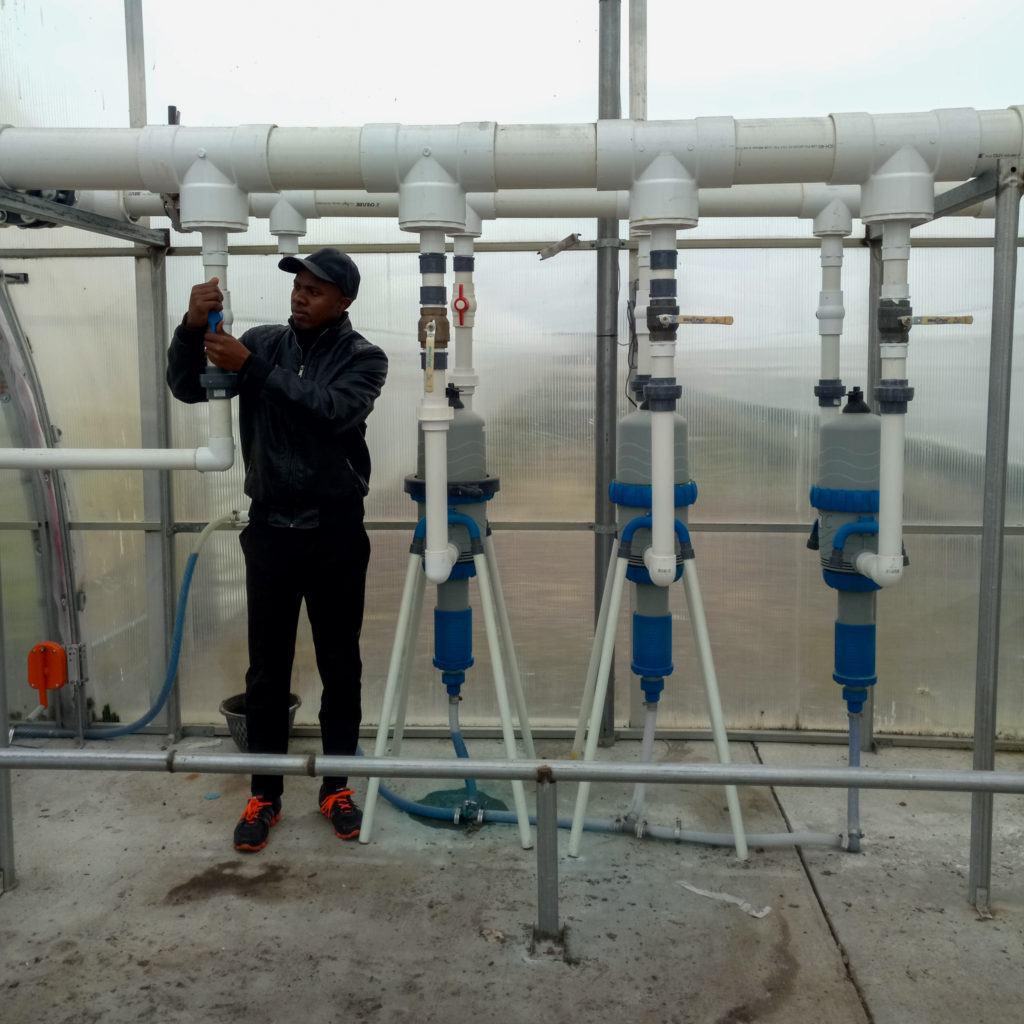
Q. What was the biggest difference in the USA from your home country?
EK: The biggest difference is the level of technology and mechanization. USA uses high-tech in the production with high yield per area while Tanzania strives in the low-tech with low yield.
Also, in the USA the minority produce for the majority, while in Tanzania smallholder farmers produce for themselves and feed a minority.
Q. Where did you travel during your CAEP experience?
EK: I traveled to Ohio and New York. I enjoyed a lot of foods and saw a lot of skyscrapers and big bridges. I experienced people from different cultures all living in one place.
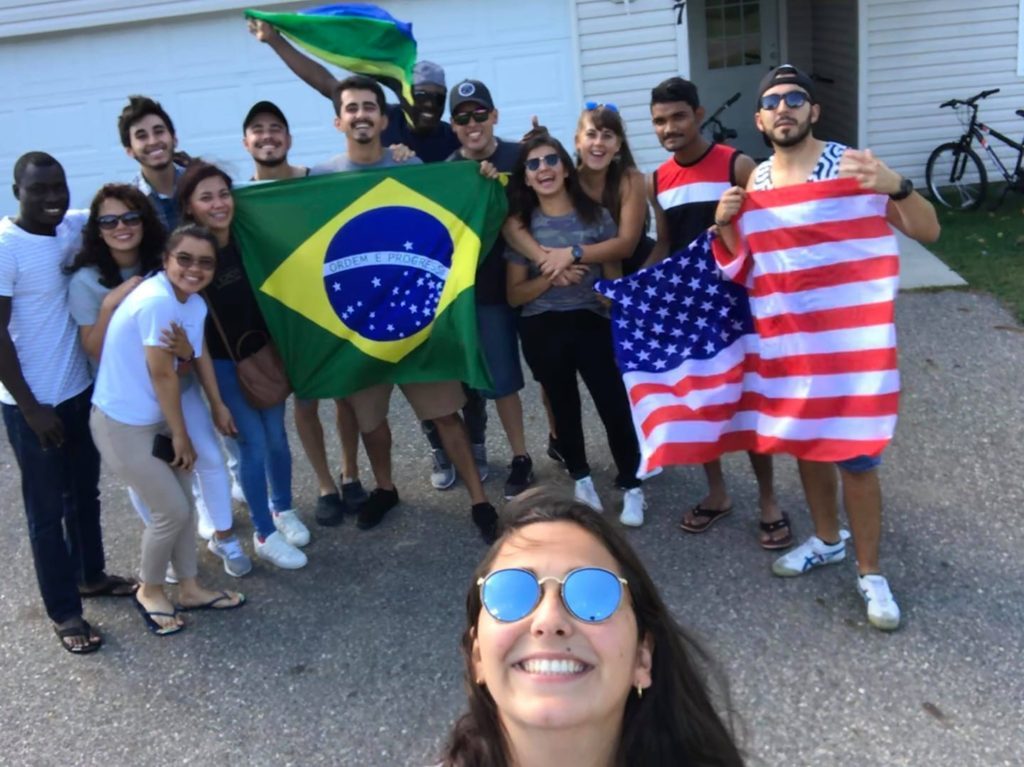
Q. Do you keep in touch with any of the connections you made during your CAEP experience?
EK: I made different friends from all over the world. We often communicate and discuss various issues facing the world and look for more partnership in the future. Thanks to CAEP.
Q. Tell me about your host?
EK: They are amazing people. They know when to motivate and when to insist.
One taught me that it doesn’t matter the challenge you are facing, things may move slowly, but just keep doing. Fail-but do not fail to try!
Q. What are the most valuable lessons you learned from working with your host?
EK: I learned a lot from them, especially how to contribute to the mission and the success story of the company, like how to overcome challenges. They made everyone in the company feel included.
Q. What were some of your daily duties during your program?
EK: At Bergen’s Nursery, my daily duties as a horticulture intern started with morning lessons from the head of growers. Then it included checking plant moisture content, observing changes from the day before, disease scoring, watering, fertilizing, weeding, pesticide application, organizing plants ready for shipping, fixing irrigation equipment, and finally recording all work done, while also helping other teams.
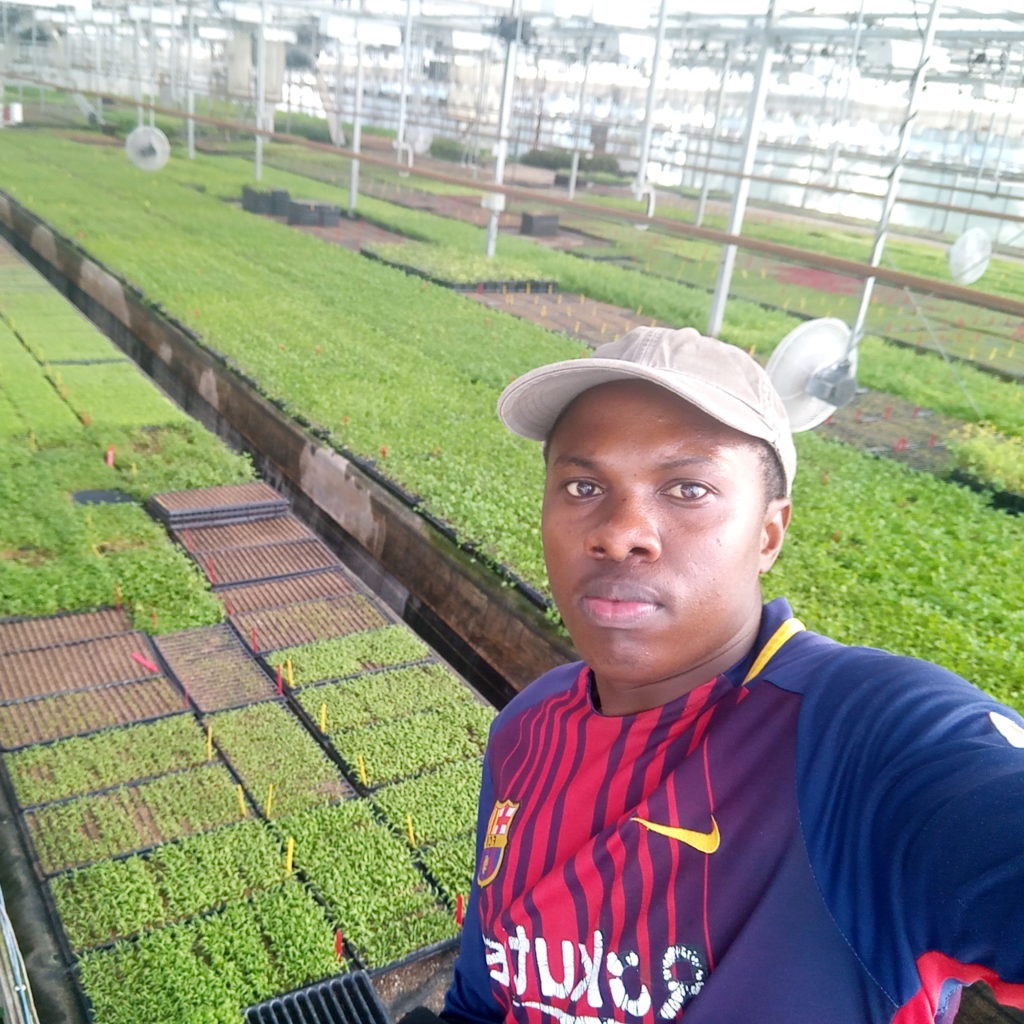
At the Chef’s Garden, my daily duties were to check orders, then harvest, organize new plants, throw and replace bad plants, prepare appropriate ratio for irrigation, apply pesticides if needed, plant new seedlings, and record all work done.
Q. What was the highlight of your experience?
EK: The highlight was learning more about automation, specialization, administration, modern irrigation, pesticide application, soil preparation, planting, pruning, harvesting, sorting, packaging, shipping and marketing skills.
Q. How do you think the CAEP experience can help people land a job?
EK: CAEP is a high-profile organization that provides real hands-on internship experience, not only in the great country of USA, but to other parts of the world.
Q. How are you applying the new skills you learned during your exchange program back in your home country?
EK: I volunteer with SUGECO-TANZANIA (Sokoine University Graduate Entrepreneurs Cooperative) as an assistant internship coordinator. SUGECO aims to transform the minds of youth to become more creative, innovative, and entrepreneurial in order to stimulate agribusiness development and create employment.
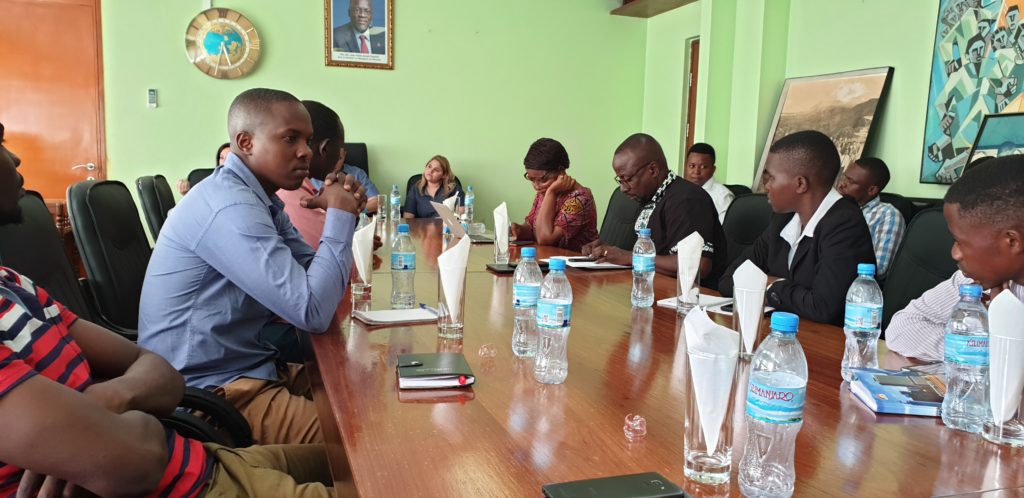
I am well aware that there are others in my generation who have the potential to do great work but lack the skills and the resources to do so. As a result, I now devote some of my time to support other Tanzanian youth interested in creating their own career.
In 2019, after finishing my training, my friend and I decided to help other youths improve their career through real hands-on experience with different farms across the country, even crossing international borders by developing a program called National Internship Programme. We mentor young adults to become recruited with CAEP through the Tanzanian country coordinator. They then bring their skills back to Africa.
Through this work, we are doing our part to address the food insecurity, nutritional insecurity, climate change, environmental problems and the youth unemployment crises we experience in Africa.
Our dream and our vision are big, in that sense we cannot solve these connected problems by ourselves. We are calling for partnership, funders and lending institutions that care about economic development in my country. They should continue to rethink their impact strategies and focus their efforts on empowering us young people to create local solutions to the issues we face.
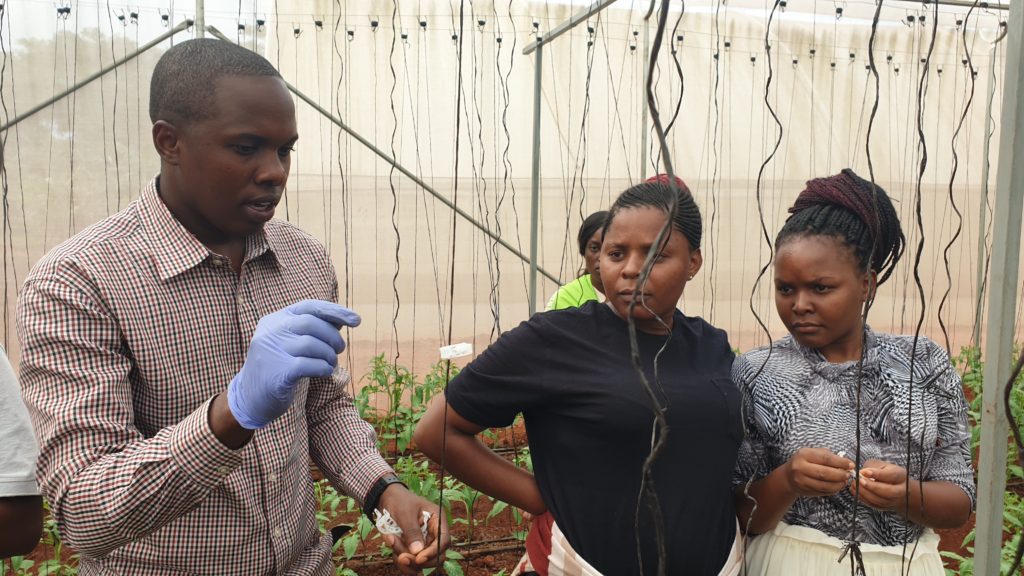
Q. How likely are you to recommend CAEP to others?
EK: I saw a big challenge on employment opportunities in many African countries, where the population of youth under 35 is bigger than the rest of population. All jobs require working experience to secure a job opportunity. I felt very stressed as a fresh graduate with those requirements. I believe many youths are facing the same challenge.
I recommend them to apply for a CAEP internship program from the website for Tanzania at https://theobardchagga.caep.org/recruiter.php?i=33
Q. Any advice for future exchange visitors?
EK: Understand the power of youth in fostering a development of any country, especially African countries. Be the change you wish to see in the world.
Interested in an international agriculture exchange program? Visit www.caep.org to apply and learn more! Travel. Earn. Learn. CAEP.

